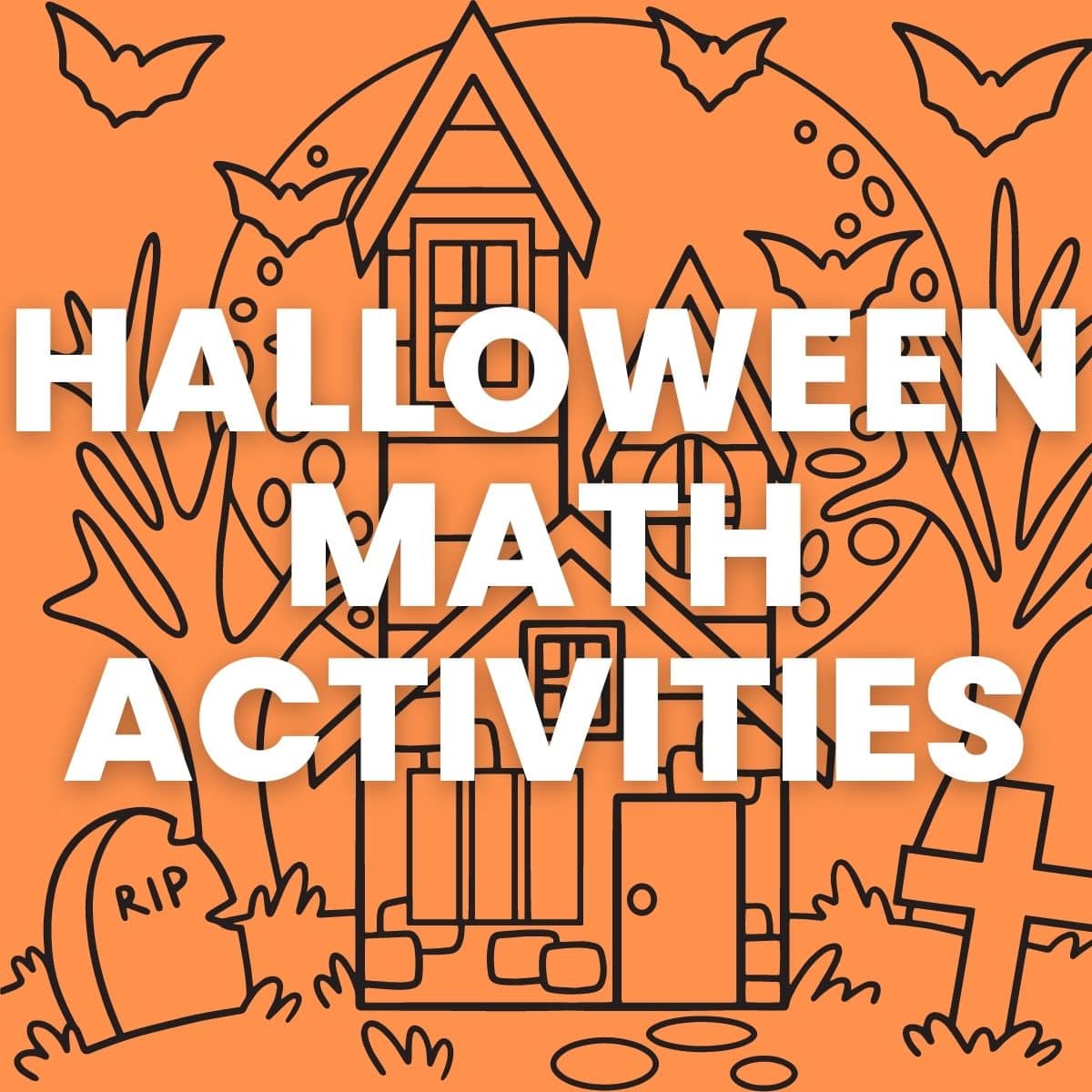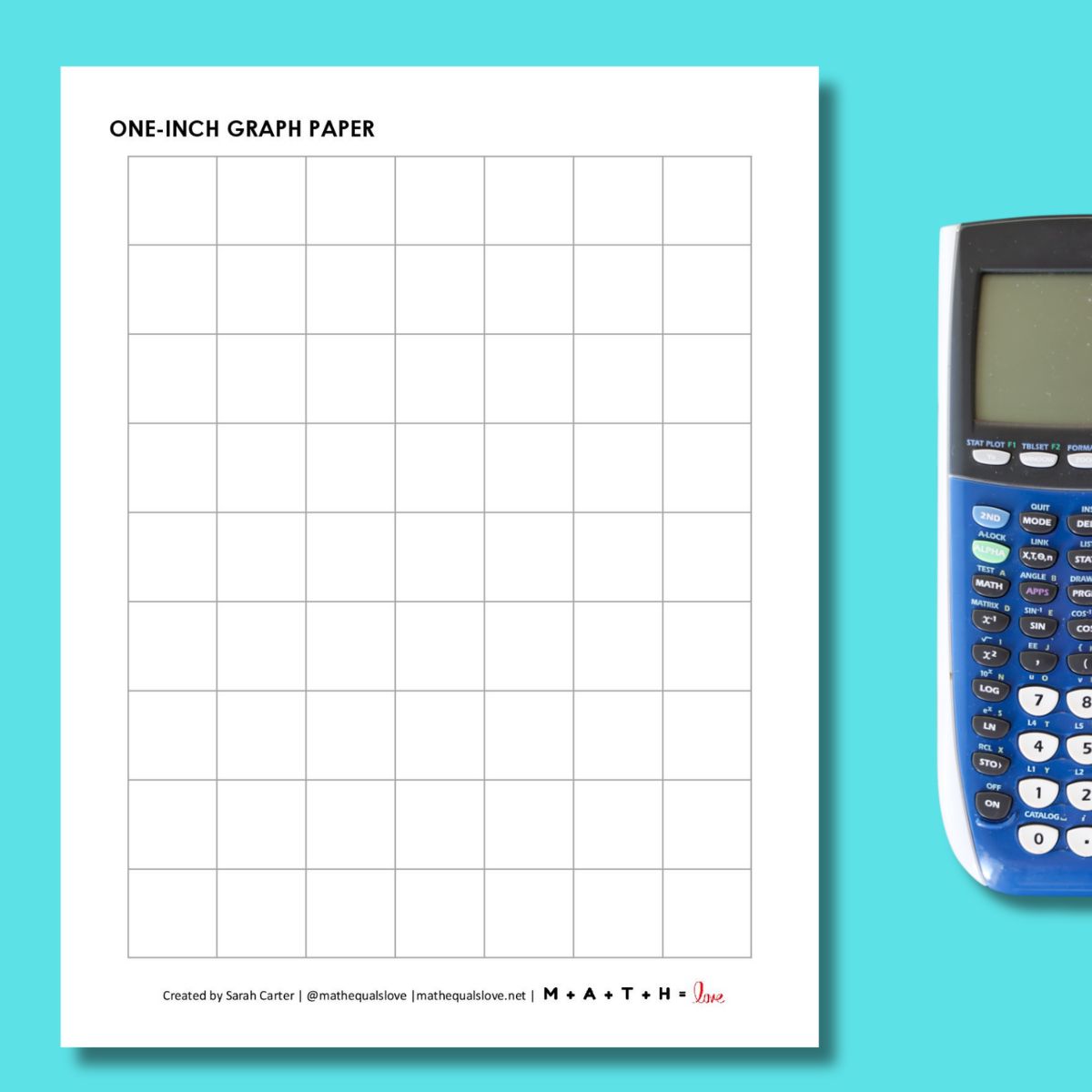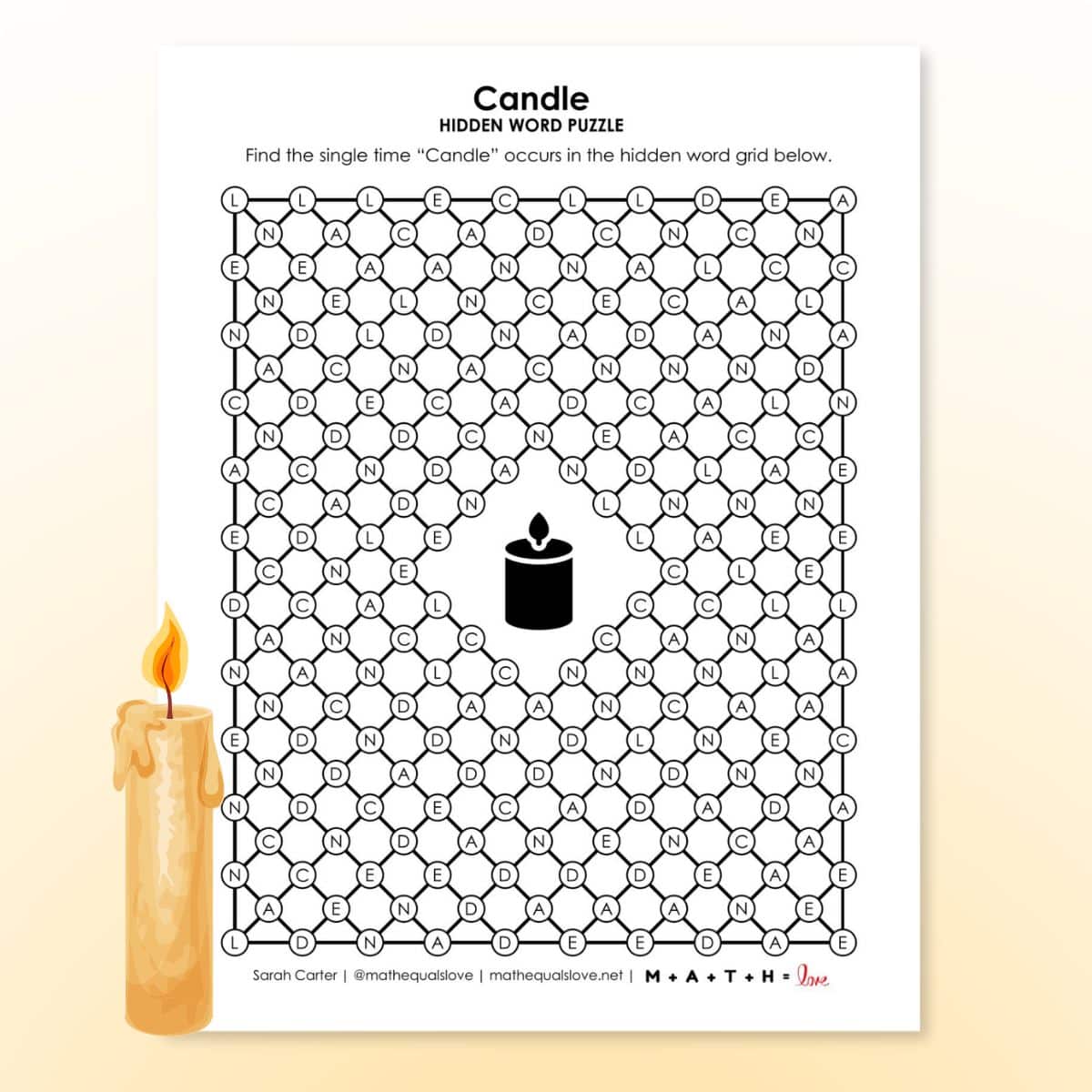Number Chart 1-30
This blog post contains Amazon affiliate links. As an Amazon Associate, I earn a small commission from qualifying purchases.
Help build your students’ number sense skills with these free printable PDF number charts for the numbers from 1 to 30.
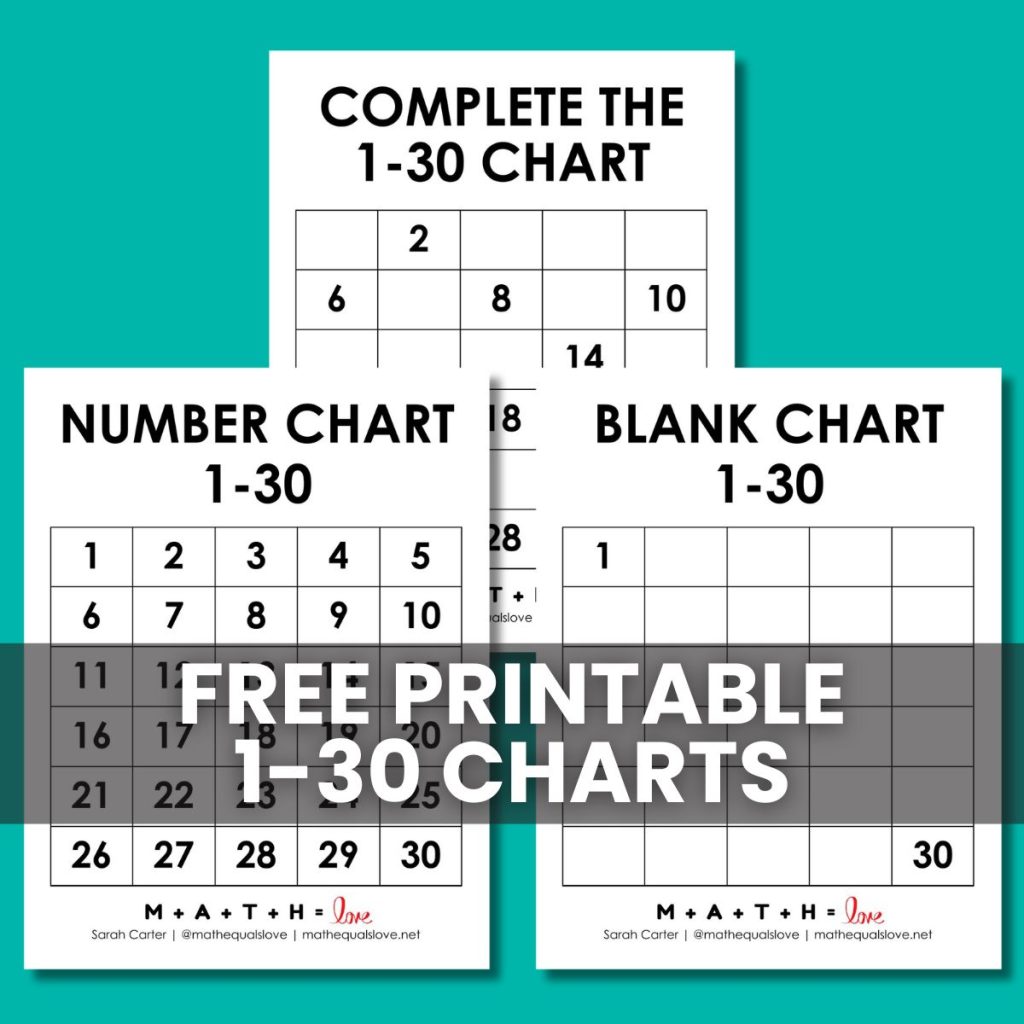
What is a 1-30 Chart?
A 1-30 Number Chart is a visual representation of the numbers from 1 to 30 that is commonly used by young children while learning numbers, counting, and basic place value concepts. The number chart features the numbers 1 to 30 arranged across five columns and six rows.
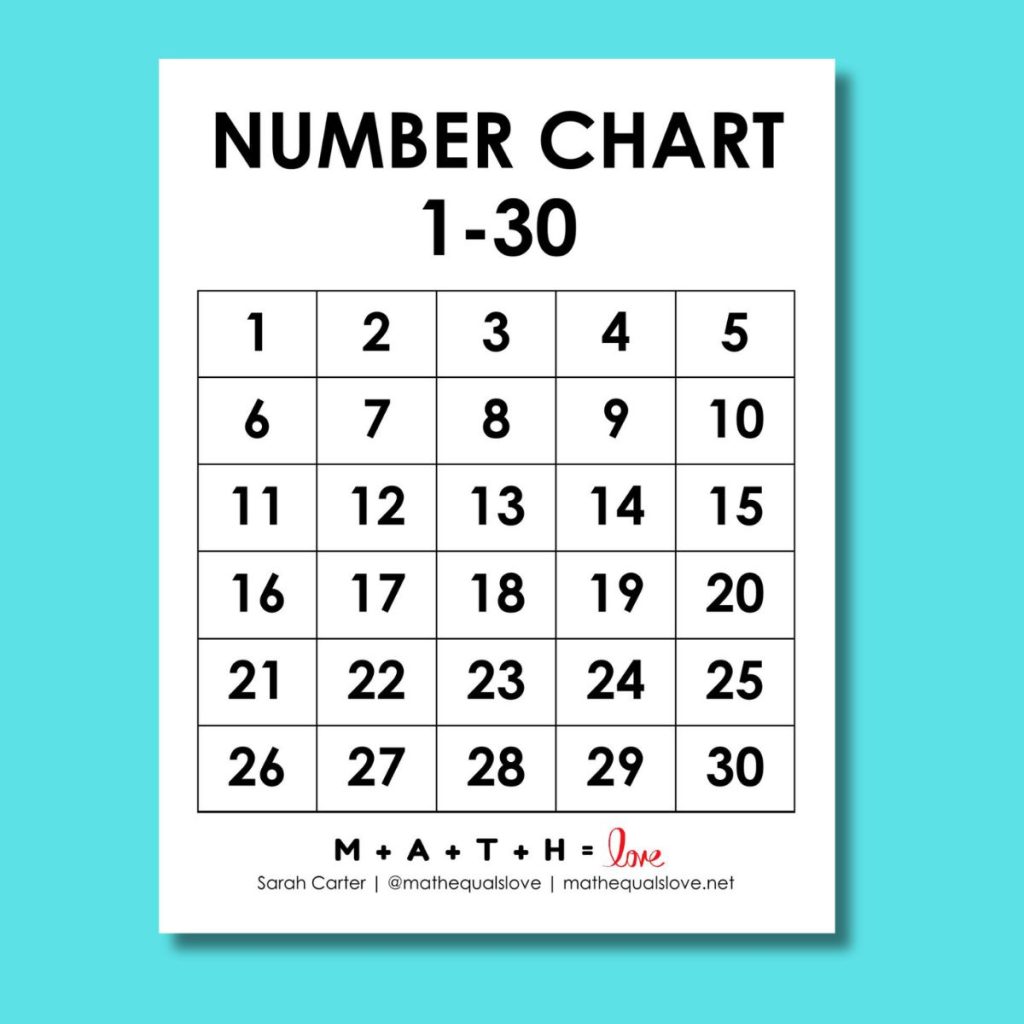
The 1-30 chart is a smaller version of the classic hundreds chart.
Need less numbers? I have also created a 1-20 chart for classroom use.
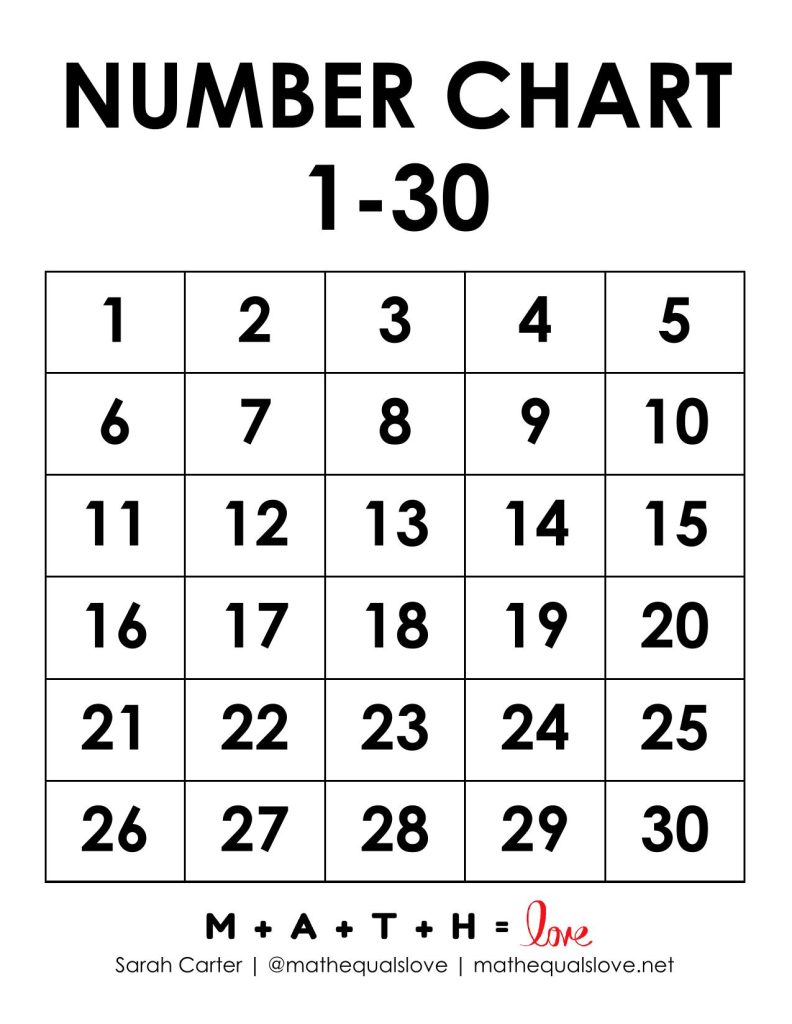
What are Number Charts Used for in the Classroom?
Print a set of these 1-30 number charts to use in your math centers or as an easy reference for students to grab. I suggest laminating the number charts for extra durability or placing them in dry erase pockets or heavy duty sheet protectors which will allow students to write and erase them over and over.
MATH = LOVE RECOMMENDS…
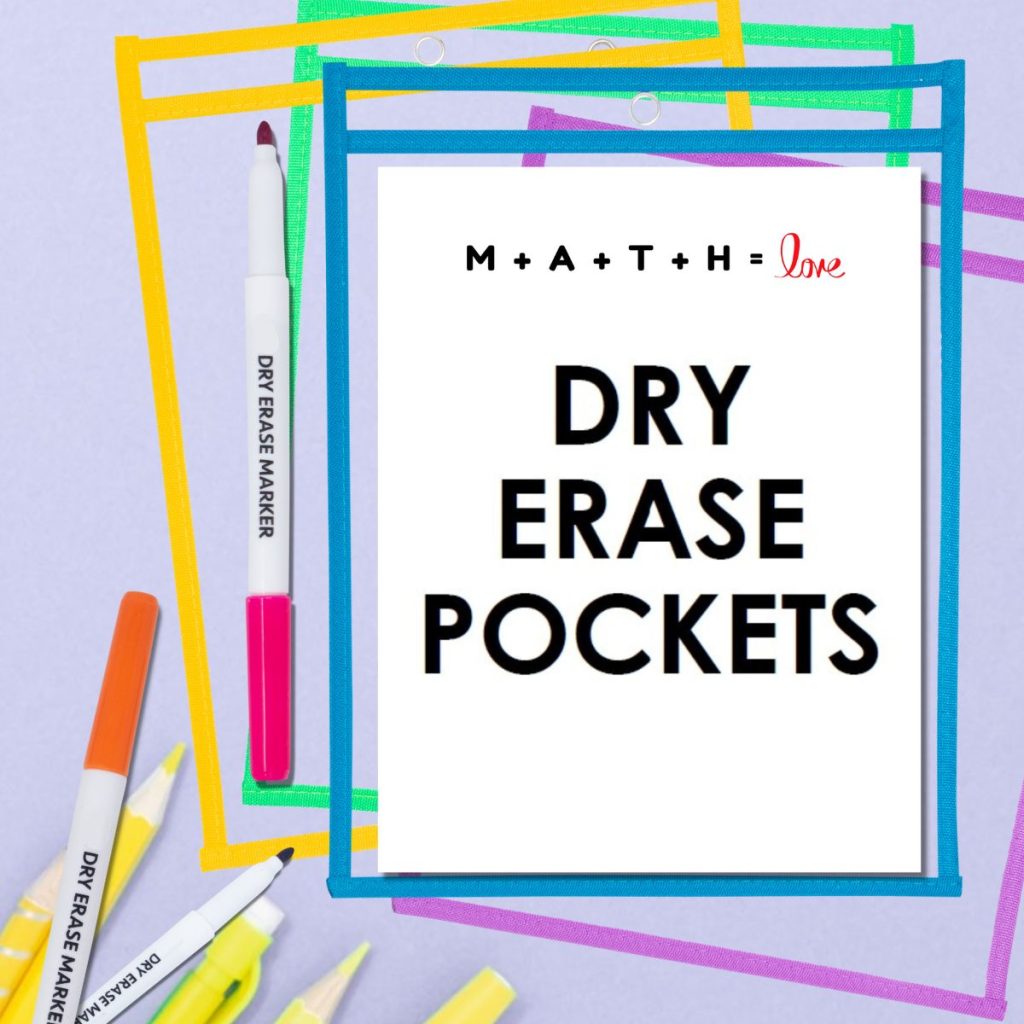
I cannot imagine teaching math without my dry erase pockets! They instantly make any activity more engaging and save me countless hours at the copy machine since I can use the same class sets of copies year after year.
Here are my current go-to recommendations:
These number charts can be used as an alternative to a number line. Students can model basic operations on the number chart using small manipulatives or counters.
You could use these number charts as a way to help students discover various number patterns. What happens if we use different colors for even and odd numbers? What happens if we color all of the multiples of 5?
They are also a great way to help students work on their number recognition skills. You could make cards for students to flip over which feature numbers written in word format or numbers represented on ten frames/double ten frames. As students turn over each card, they could mark the number off on their 1-30 chart.
One of my favorite ways to use number charts in the classroom is to discover patterns within the numbers. An example of this would be to have the students color all of the squares with even numbers one color and all of the squares with odd numbers another color.
There are so many different student activities that you could create using these 1-30 number charts.
Blank Number Chart 1-30
Do your students need practicing writing their numbers from 1 to 30?
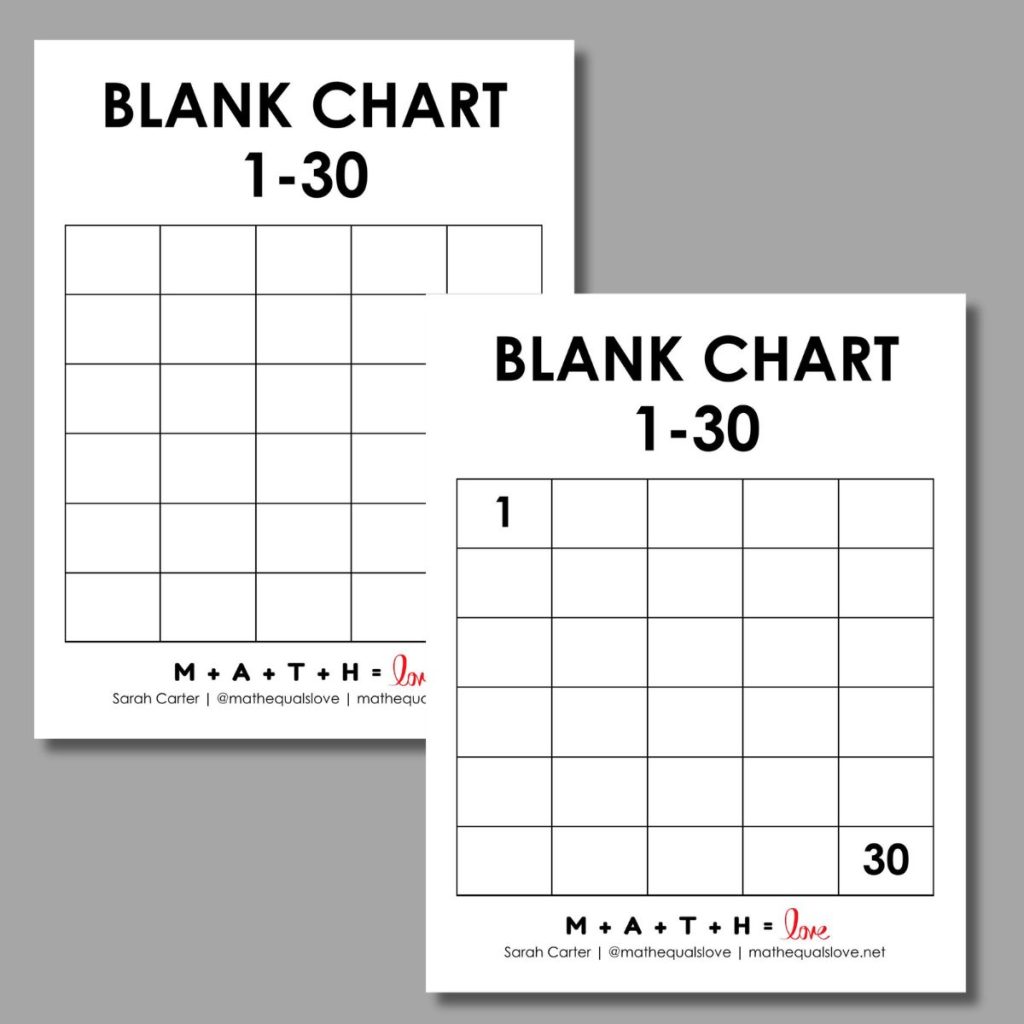
I created a set of blank charts that you can print and have students fill in. The first version of the blank 1-30 chart has the numbers 1 and 30 filled in already. Students must write in the numbers from 2 to 29.
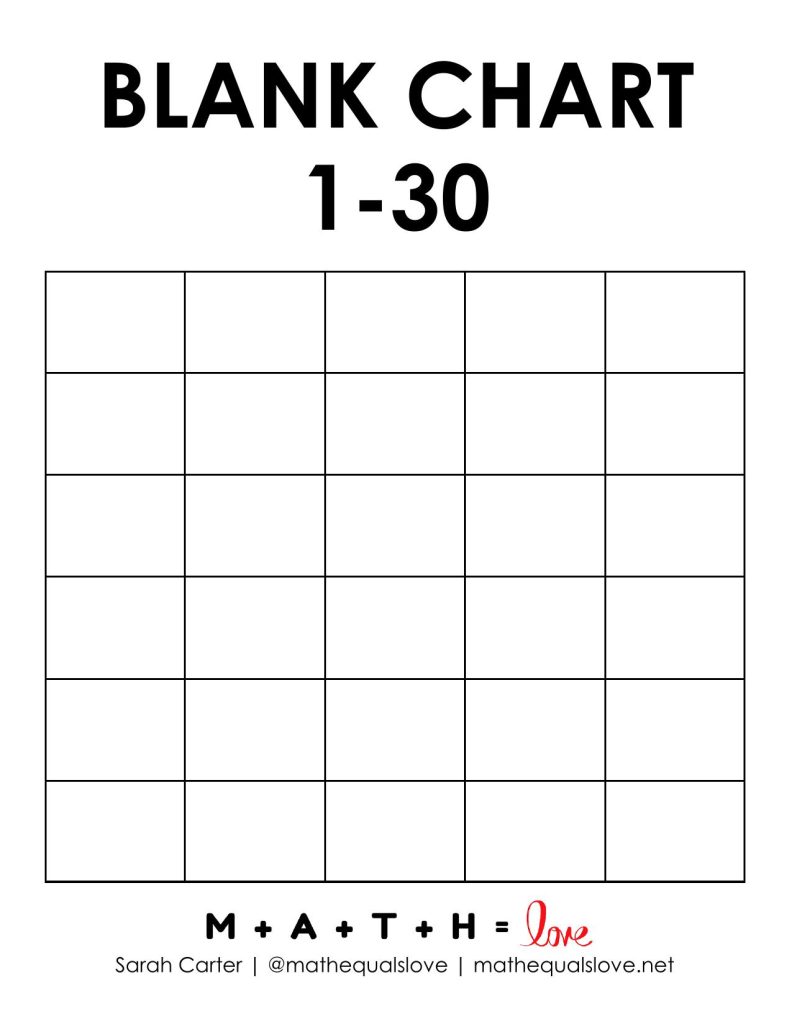
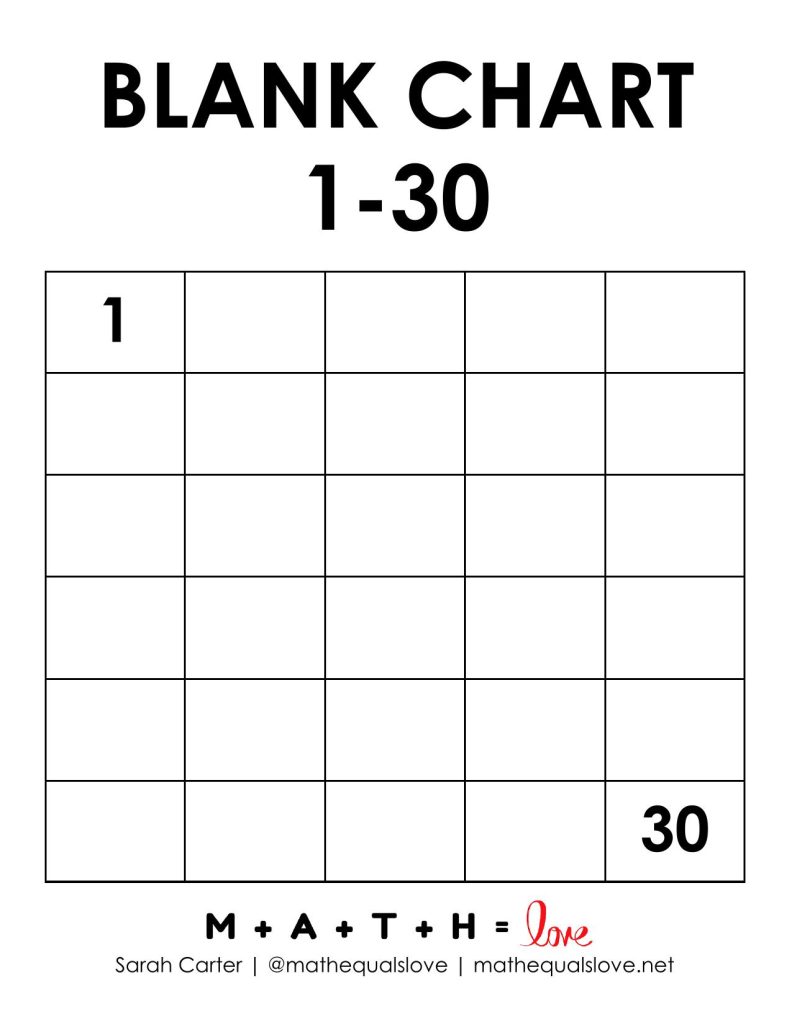
I also created an alternate version which has all thirty boxes blank.
Fill in the Blank 1-30 Number Charts
I also created a set of four different fill in the blank 1-30 number charts for students to use to practice writing their numbers from 1 to 30.
This blank printable number chart will give your young learners meaningful practice writing numbers in the correct order.
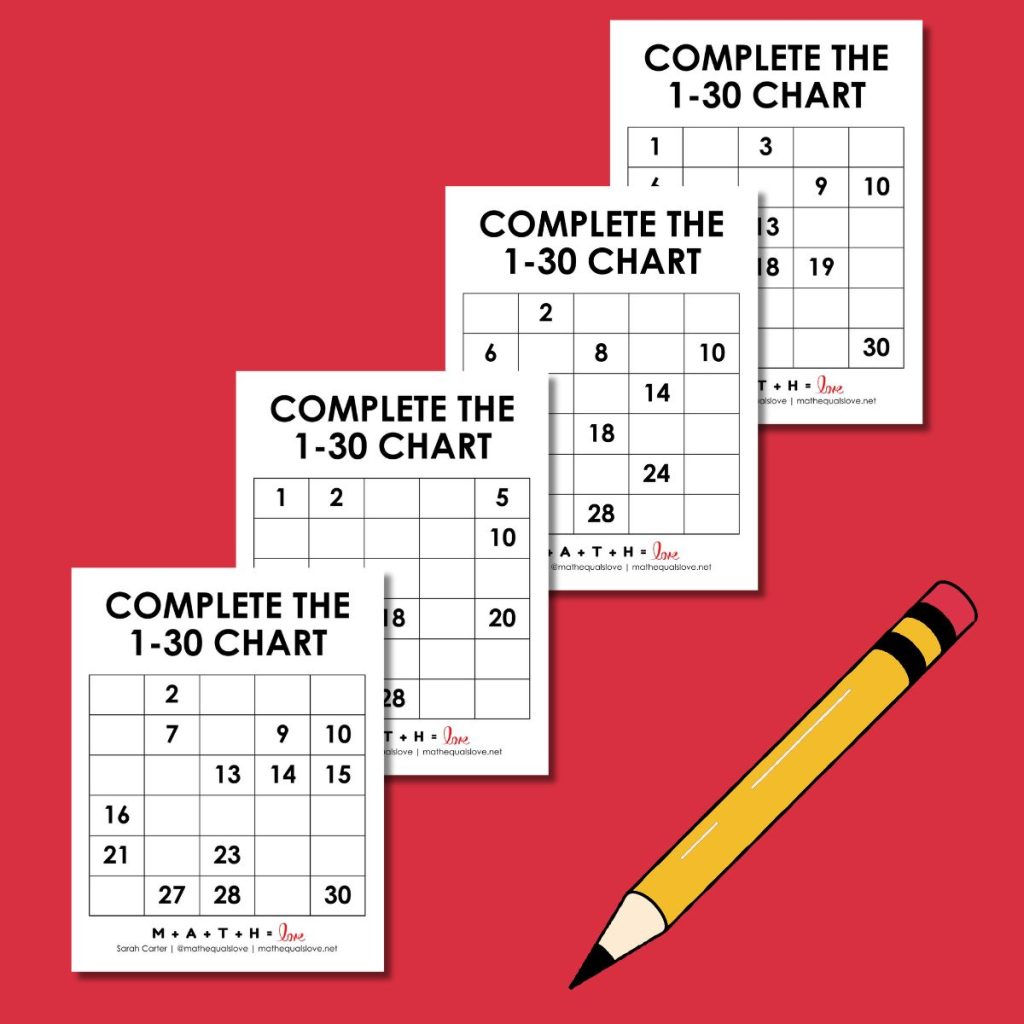
Some of the numbers are filled in already. Students must work to figure out what the missing numbers are. This missing numbers chart is a fun way to fit in some number writing practice.
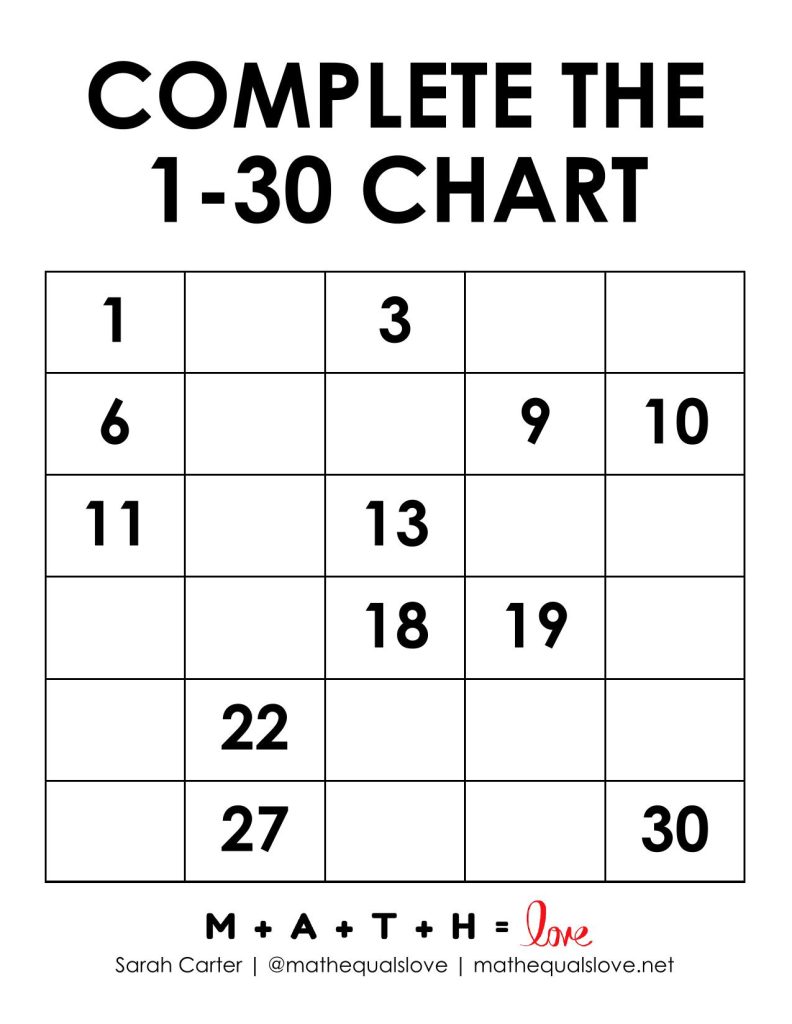
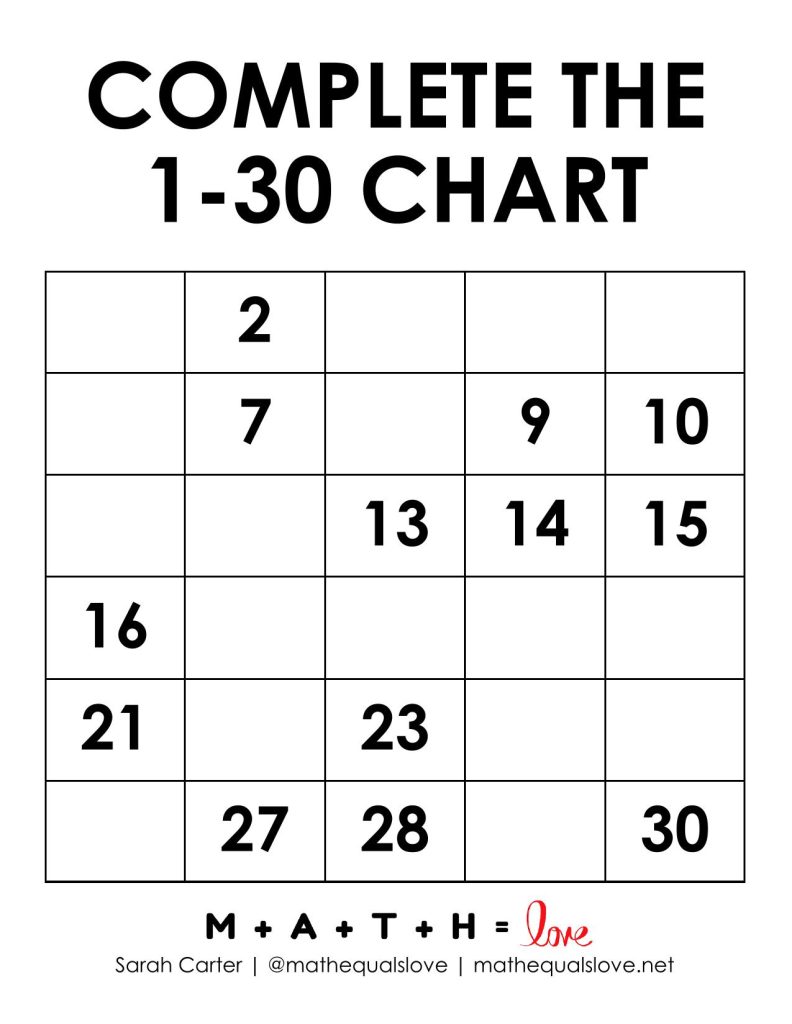
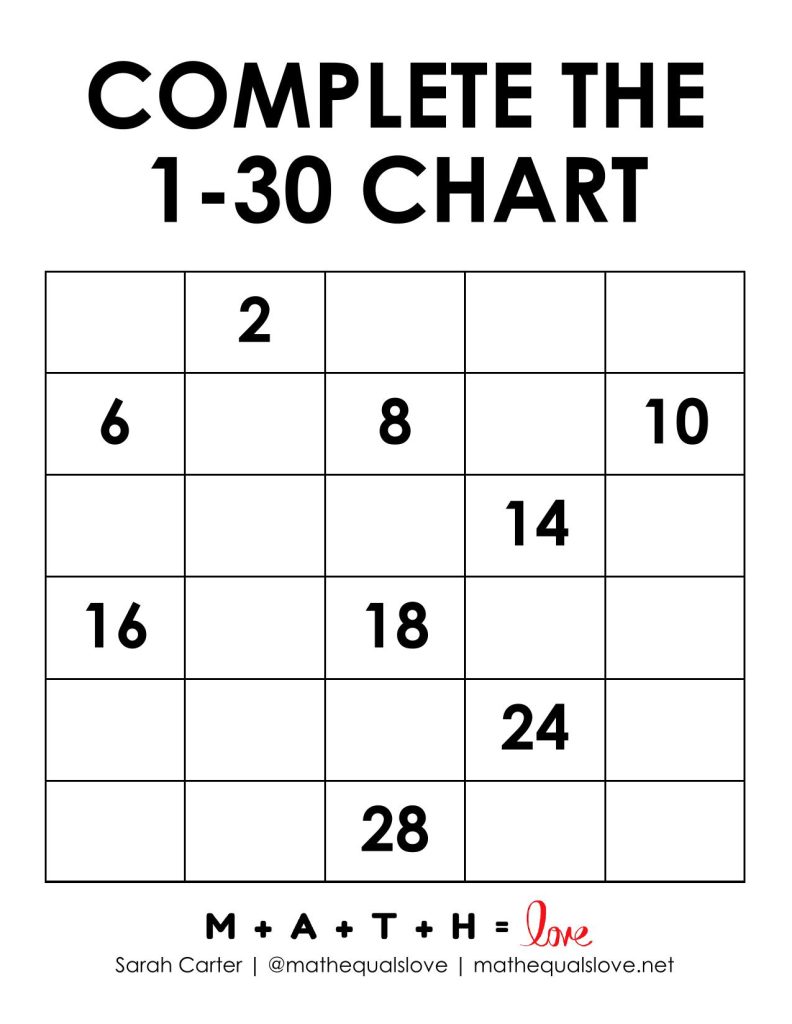
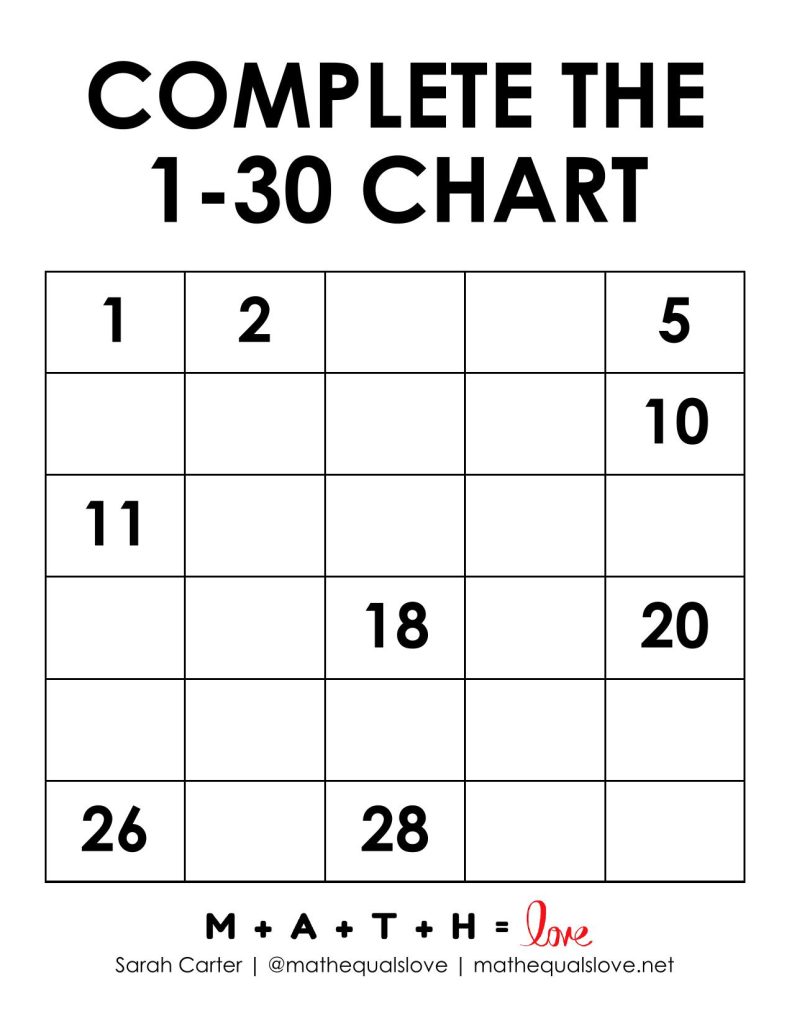
Printable Numbers Chart 1-30 Files
These 1-30 printable number charts are available in PDF file format and as editable Publisher files. To edit the Publisher files, you will need to make sure you have Microsoft Publisher installed on your Computer
30 Chart (Filled In)
Click here to SAVE the file to your device.
1-30 Number Chart (Filled In) – PDF
4850 saves – 49.33 KB
30 Chart (Blank – 2 Different Versions)
Click here to SAVE the file to your device.
1-30 Number Chart (Blank) – PDF
4105 saves – 51.86 KB
30 Chart (Fill in the Blanks – 4 Different Versions)
Editable Publisher Files
Be sure to check below for more great resources including free printable worksheets for the young mathematicians in your life.



